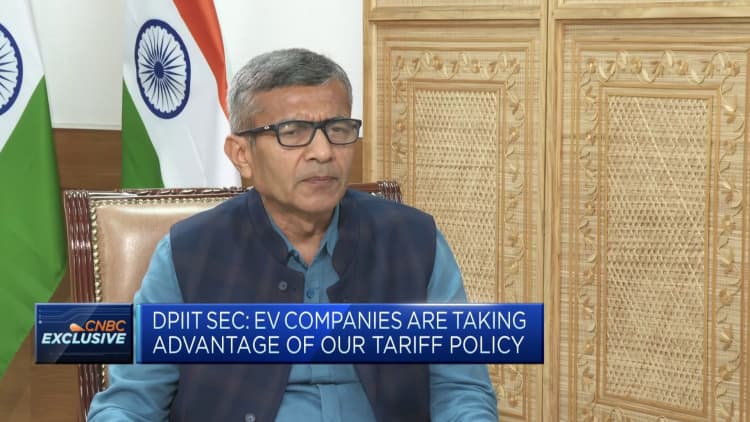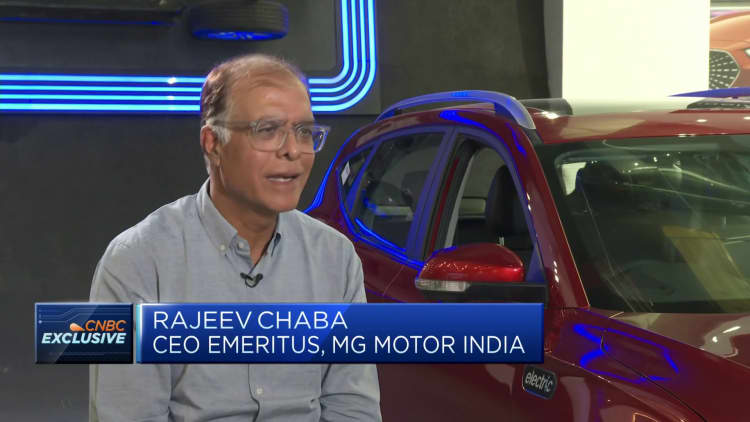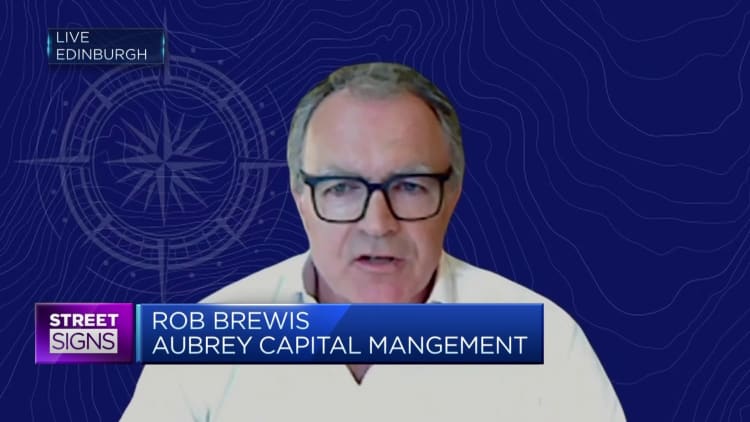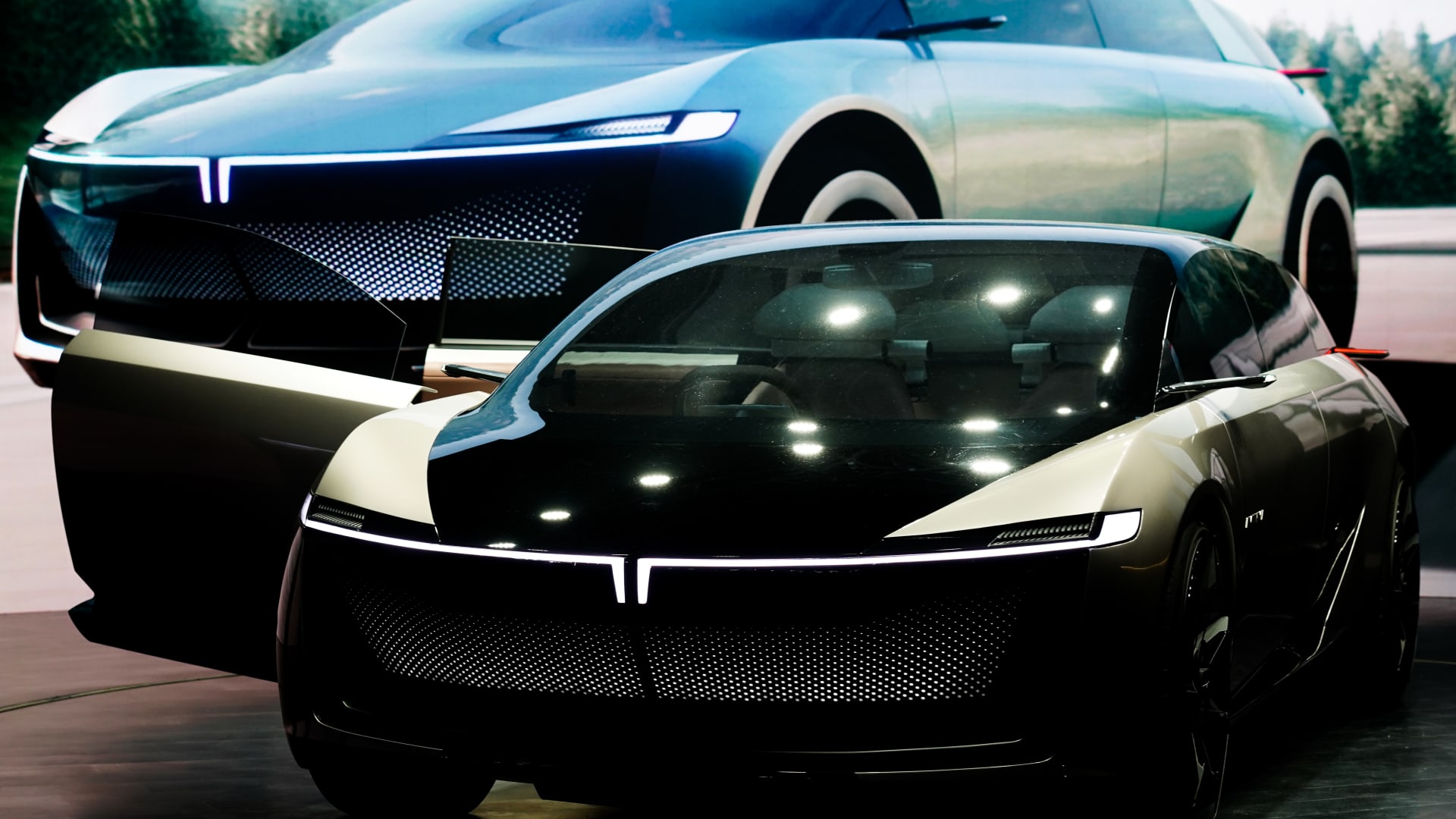
India is confident that its new electric vehicle policy measures will open up the market to more global players, said the country’s secretary of the Department of Promotion of Industry and Internal Trade.
Last month, the government rolled out key initiatives aimed at bolstering the country’s position in EV manufacturing.
“It involves concessional tariffs for limited volumes of imports by global EV manufacturers, linked to ironclad commitment by them to invest in India a minimum of $500 million,” Rajesh Kumar Singh told CNBC’s Sri Jegarajah.
“And also meet very stiff localization targets of 25% by the third year and 50% by the fifth year,” he added. “It was meant for all global EV manufacturers and domestic manufacturers.”
While much of the “buzz has been around Tesla,” Singh underscored the initiatives will also attract other foreign automakers, highlighting that Vietnam’s leading EV maker “VinFast has already announced its intent.”
“While I don’t want to mention some of the other companies who are interested, we are very confident that multiple companies will be taking advantage of this policy.”
In February, VinFast broke ground on its integrated EV manufacturing facility in India’s southern state of Tamil Nadu. The company plans to initially invest $500 million over five years, with a projected capacity of 150,000 vehicles annually, according to the statement.
Tesla CEO Elon Musk has said he is “incredibly excited about the future of India.” But he recently postponed a scheduled trip during which he was set to meet Prime Minister Narendra Modi, citing “heavy Tesla obligations” for why he couldn’t come.
“The door is, obviously, very much open,” to Tesla said Singh. As competition in India’s EV sector remains limited, the entry of major players like Tesla, will level the playing field, MG Motor India’s CEO Emeritus Rajeev Chaba told CNBC.
Robust trajectory
According to Counterpoint Research, India’s EV sales nearly doubled in 2023, driven by rising consumer interest and government initiatives, among other factors. It is expected to increase by 66% in 2024 to constitute 4% of total passenger vehicle sales.
“By 2030, EVs are expected to represent nearly one-third of India’s PV market, signaling a robust long-term growth trajectory in the country’s automotive sector,” said Counterpoint.
Modi aims to have 30% EV usage by the end of this decade, a target that Singh called realistic.
“For passenger cars, I would say, it will be more realistic to expect 15% to 20% by then,” he said. “But overall, if you look at all types of vehicles, including our commercial vehicles among three-wheelers and two-wheelers, certainly we will be hitting above 30%.”

When it comes to India’s two-wheelers and three-wheelers, EV penetration is strongly picking up, the secretary added.
“We already have one of the highest in the world — close to 50% — for three-wheelers. For two-wheelers, we are already at about 10%-12%,” he noted.
“In passenger vehicles, we have this lag — where the penetration so far is only about 2%, which is why we wanted to kickstart this process by creating a policy, which incentivizes manufacturers to come into India in larger numbers and bring in their latest models and technology.”
India overtook China in 2023 to become the biggest market for electric three-wheelers, with over 580,000 sales, the International Energy Agency said in its latest “Global EV Outlook” report.
The country is also the second-largest electric two-wheeler market globally, the report added, with sales in 2023 growing by 40% compared with 2022.
“The Indian electric 2W market is dominated by the five largest domestic manufacturers (Ola Electric, TVS Motor, Ather, Bajaj and Ampere), which accounted for more than 75% of sales,” IEA said.
Structural problems
Still, there are several structural challenges that need to be addressed to spur increased EV adoption, pointed out Bain & Company.
India significantly lags other countries on charging infrastructure, “with roughly 200+ EVs per commercial charging point in India, as compared to ~20 in the US and less than 10 in China,” Bain highlighted in a report.
“It is a challenge,” Singh acknowledged. “But investment in setting up the battery charging infrastructure is now underway in many of our larger cities, and even in some of the highways.”

“Our expectation is that the battery charging infrastructure will become quite ubiquitous in the next two to three years.”
The secretary also highlighted “range anxiety” — or the fear that EVs won’t have enough range to reach their destination — is another barrier that needs to be overcome.
“Range anxiety as an issue will, hopefully, not prevent the expansion” of the EV space and “demand among consumers for fully electric vehicles,” he said.

